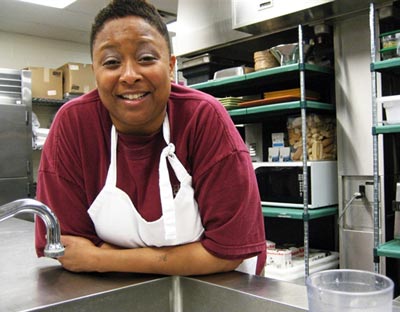 LA:
LA: An Indiana woman put on death row at age 16 for killing an elderly Bible school teacher is scheduled to be released Monday after serving a prison term that was shortened after the state Supreme Court intervened.
Paula Cooper's death sentence at such a young age sparked international protests and a plea for clemency from Pope John Paul II. Now 43 years old, Cooper is being given a second chance at her life.
According to the AP report, Cooper was 15 when she and three other teenage girls showed up at Ruth Pelke's house on May 14, 1985, with plans of robbing the 78-year-old Bible school teacher. Pelke let Cooper and two of the teen's companions into her Gary home after they told her they were interested in Bible lessons.
As the fourth teen waited outside as a lookout, Cooper stabbed Pelke 33 times with a butcher knife. Then she and the other girls ransacked the house. The four girls fled with Pelke's car and $10.
Cooper's three accomplices were sentenced to prison terms ranging from 25 to 60 years. But Cooper, who confessed to Pelke's slaying, was convicted of murder and sentenced to die in the electric chair. At the time - in 1986 - she was the youngest death row inmate in the U.S.
Some people believed Cooper deserved to die, but the punishment enraged human rights activists and death penalty opponents around the world, including those who viewed the teen as a victim of a racist criminal justice system.
Pope John Paul II urged that Cooper be granted clemency in 1987, and in 1988 a priest brought a petition to Indianapolis with more than 2 million signatures protesting Cooper's sentence.
The Indiana Supreme Court set Cooper's death sentence aside in 1988 and ordered her to serve 60 years in prison after state legislators passed a law raising Indiana's minimum age limit for execution from 10 to 16. The state's high court also cited a 1988 decision by the U.S. Supreme Court barring the execution of juveniles younger than 16 at the time of the crime.
Since then, the US Supreme Court has found it unconstitutional to execute anyone younger than 18.
"People still know about this case," Indianapolis attorney Jack Crawford, who was the Lake County prosecutor during Cooper's murder trial, told The Indianapolis Star. "The name Paula Cooper still resonates, and she's going to attract some attention when she is released."
But, he said, Cooper has done her time and may yet contribute to society. Crawford said he has come to oppose the death penalty since Cooper's conviction.
Cooper's sister, Rhonda Labroi, said she hopes people will see Paula as more than a killer. After getting in trouble 23 times during her time in prison, Paula Cooper turned to education, earning a bachelor's degree in 2001.
"She was just a child at the time that happened, and now she is an adult and people should wait and see and give her a chance," Labroi said. "Give her an opportunity. Maybe she'll do some wonderful things for children who are growing up and aren't so fortunate, like she was.
"There are second chances," she said. "It seems like God has given her another chance. I think if people give her a second chance, she'll do fine."
 LA: An Indiana woman put on death row at age 16 for killing an elderly Bible school teacher is scheduled to be released Monday after serving a prison term that was shortened after the state Supreme Court intervened.
LA: An Indiana woman put on death row at age 16 for killing an elderly Bible school teacher is scheduled to be released Monday after serving a prison term that was shortened after the state Supreme Court intervened. 